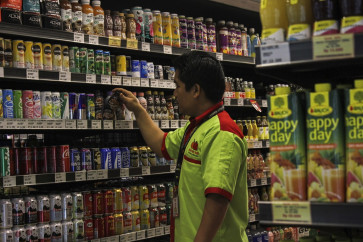Social media monitoring agency could curb free speech, activists warn
The new communications and information minister, Budi Arie Setiadi, says Indonesia needs an agency to monitor "disturbing" content on social media.
Change text size
Gift Premium Articles
to Anyone

H
uman rights activists have raised concerns over the new communications minister’s plan to form a social media surveillance team, expressing fear that the move could stifle free expression online.
Shortly after his inauguration on July 17, Communications and Information Minister Budi Arie Setiadi told reporters that the country needed an agency to monitor “disturbing” content on social media. He likened the agency to the Indonesian Broadcasting Commission (KPI), which monitors television and radio content.
“We find a lot of content on social media containing disturbing messages. Maybe soon we’ll need a social media monitoring agency,” Budi said.
A week later, the new minister claimed during a press briefing that the monitoring plan would uphold democratic principles while preventing conflict and commotion. He did not provide further details on the agency, noting that the discussion was still in its early phase.
Should the government decide to move forward with the monitoring, it would not suppress free speech on online platforms, the minister pledged.
Read also: New communications minister pledges to ramp up fight against online gambling
But critics are worried that the agency could become a tool for mass surveillance.
Such government monitoring could discourage open online discussion and prevent people from voicing their opinions, said Wahyudi Djafar, the executive director of the Institute for Policy Research and Advocacy (Elsam).
The government could file requests for social media platforms to take down or block content deemed in violation of the country’s laws, such as the Criminal Code (KUHP) or the Electronic Information and Transaction (ITE) Law, he noted.
Initiatives to filter content on social media, Wahyudi added, should be carried out through laws, rather than through executive regulations such as government regulations (PP) or ministerial decrees.
Article 40 (2b) of the ITE Law gives the government the authority to block access to online content that violates the law. But the ITE Law does not specify what types of harmful content are to be targeted or what the procedures are for limiting access to them.
The amendments to the ITE Law currently under consideration by the House of Representatives, Wahyudi noted, would likely provide clearer guidelines on how harmful content would be defined and how it would be addressed.
Read also: Civil groups urge broader ITE Law revision from lawmakers to protect free speech
Damar Juniarto, executive director of the Southeast Asian Freedom of Expression Network (SAFEnet), cited the European Union’s Digital Service Act (DSA) as an example of a model framework for regulating online content. Its definition of illegal content includes content that promotes sexual harassment, suicidal ideas or terrorism.
“Any content on social media that potentially creates commotion or promotes violence should be categorized as illegal content,” Damar said on Monday.
Wahyudi and Damar were also both concerned about the institutional position of the agency, suggesting that such a body should be independent rather than serve under a ministry. The Press Council, which independently monitors media outlets and safeguards press freedom in the country, could serve as a model.
To ensure that the social media monitoring agency was independent from the government, Damar said, its personnel should come from a variety of professional and personal backgrounds and understand principles of free speech and content moderation.
“It shouldn’t be under the communications ministry,” Damar said. “If so, there’s a potential the agency will become a government tool to censor free speech.”









